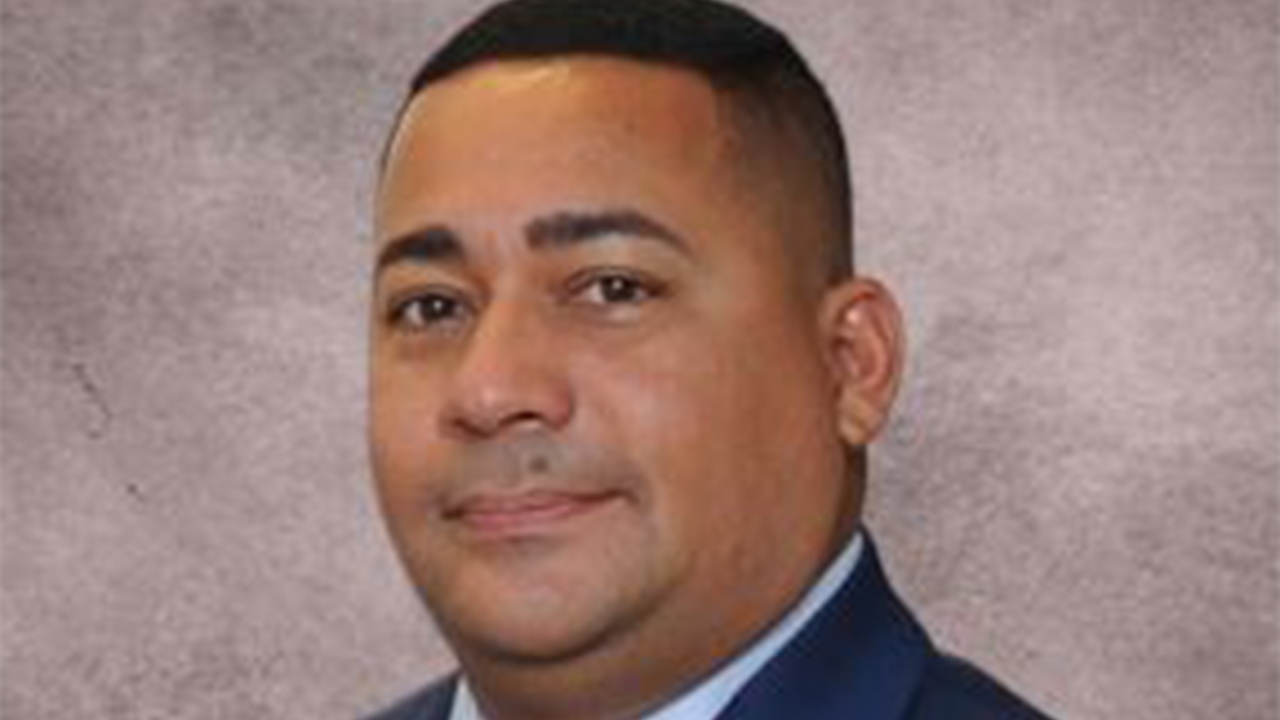Randy Gilbert, J.D.
Chief Happiness Officer
Florida’s Title Insurance Company
(954) 500-Title (8485)
Scenario #1 – Disinterested. The first thought cloud that popped into to my head was: two (2) people in a car get pulled over, the passenger throws his bag of drugs to the driver and says, “here it’s yours!” The driver looks back stupefied – now what? “I disclaim this belongs to me!” says the driver. The scenario is extreme, but it gets the point across.
Because what prompted me to write this article was, what if a grantor conveyed real estate that the grantee either: never wanted; was mistakenly given; or due to grantee’s predicaments would not be within grantee’s best interest to take?
Scenario #2 – Mistake. Errors in deeds are more common than you think but not all of them are easily fixed.[1] What if a grantor mistakenly conveys title to the wrong grantee? Too bad, so sad for that grantor. A corrective deed may not be used,[2] but as this article addresses there may be a work around.
Scenario #2 – Burdensome. What if the property was undesirable; plagued by liens, code violations, environmental contamination, waste, an unsafe structure, and it would cost more to rehabilitate than it was worth?
Scenario #3 – Evading Judgment Creditors. Or a more common scenario, what if wealthy Grantor Grandpa wants to leave his three (3) grandchildren valuable property, but prior to or at the time of Grantor Grandpa’s death, one of the three (3) grandchildren, Debtor Dave racked up some serious judgments against him? If Debtor Dave receives that 1/3rd interest it could be levied against and taken by Debtor Dave’s creditors. Can a Grantee/Donee/Recipient of property give back property which is already deeded, conveyed, transferred, and recorded in the public records and which shows Debtor Dave as an Owner?
Undoing a Deed Transfer as if it Never Happened. As a title company we deal with conveying and transferring property, but can a transfer be undone, rescinded, nullified, or cancelled? I am not talking about transferring the property back – like A transfers to B, the property is vested in B, and then B transfers back to A (i.e. two separate transfers). What I am talking about is cancelling the vested transfer as if the transfer from A to B never happened? As if title never left A, and the property never vested in B in the first place? Is there a way to hit Ctrl + Z, backspace, and just undo a deed? The answer seems to be Yes.
The Florida Uniform Disclaimer of Property Interests Act (“FUDOPIA”) applies to disclaimers of any interest in or power over property, whenever created, and with limited exception (see below when barred) is the exclusive means under Florida law that a disclaimer may be made.[3] “Disclaimer” and “Renunciation” both mean, the refusal to accept an interest in or power over property (like when appointed as a trustee, power of attorney, or agent over property).[4] A person who disclaims an interest or power in property is called the Disclaimant.[5]
When Can a Disclaimer be Made? Unless barred, a disclaimer can be made at any time.[6]
When are Disclaimers Barred or Disallowed? You can lose your right to disclaim or renunciate your interest in property. Most poignantly, when taking affirmative action that would be completely inconsistent with disclaiming. In other words, you cannot have your cake and eat it to. You cannot utilize or accept an interest in property and then simultaneously disavow that you have any interest in that same property. So a disclaimer of an interest in property will not be allowed in four (4) instances: (1) a written waiver of the right to disclaim; (2) The disclaimant accepts the property interest before the disclaimer becomes effective; (3) The disclaimant voluntarily assigns, conveys, encumbers, pledges, or transfers the property interest or contracts to do the foregoing before the disclaimer becomes effective; (4) The disclaimant is insolvent when the disclaimer becomes irrevocable. [7] “Insolvent” means, that the sum of a person’s debts is greater than all of the person’s assets at fair valuation and that the person is generally not paying his or her debts as they become due. [8]
Can the Disclaimer be Partial, or Must it be Entirely? A person can disclaim all or part, conditionally or unconditionally, any interest in or power over property. [9] A partial disclaimer may be expressed as a fraction, percentage, monetary amount, term of years, limitation of a power, or any other interest or estate in the property. [10]
Can the Grantor prevent the Grantee from Disclaiming? No. Florida apparently does not follow one of the more creative playground rules known as “No take backs!” In Florida, a person may disclaim their interest even if its creator imposed a restriction or limitation on the right to disclaim. So a grantor cannot deed property to a grantee and eliminate the grantee’s right to renunciate or disclaim the property by including words to the effect of “No take backs.” If a disclaimant makes a disclaimer then it is considered unconditional unless the disclaimant explicitly provides otherwise in the disclaimer.[11]
What are the Requirements for an Effective Disclaimer? To be effective, a disclaimer must be: (1) in writing, (2) declare the writing as a disclaimer, (3) describe the interest or power disclaimed, (4) be signed by the person making the disclaimer, and (5) witnessed[12] and (6) acknowledged[13] in the manner provided for deeds of real estate to be recorded[14] in this state.[15] Generally, a deed needs to be in writing, signed in the presence of two subscribing witnesses, properly signed and notarized, and meet certain requirements before it may be recorded.[16]
Delivering the Disclaimer. In addition, for a disclaimer to be effective, the original disclaimer must be either delivered or filed.[17] Delivery of a disclaimer may be effected by personal delivery, first-class mail, or any other method that results in its receipt.[18] Notwithstanding, delivery of a disclaimer of an interest in or relating to real estate is presumed upon recording the disclaimer in the county where the real estate is located. A disclaimer sent by first-class mail is deemed delivered on the date it is postmarked, delivery by other methods are effective upon receipt.
When a Disclaimer is Invoked, When Does the Disclaimer Take Effect? Once the disclaimer is validly invoked, it takes effect as of the time the instrument creating the interest becomes irrevocable.[19] If however the interest arises under the laws of intestate succession (i.e. someone dying without a will or some other legal declaration), then the disclaimer will take effect at the time of the intestate’s death.[20]
So if the Property Interest is Disclaimed by the Intended Grantee, Who Does the Property Interest Now Belong To? When a disclaimer occurs, it is not considered a transfer, assignment nor a release.[21] Rather, well… this is weird, if you disclaim an interest in property, then much like your mother-in-law (just a joke), the law treats you as if you were dead. Assuming that the instrument creating the interest does not say what happens if a disclaimer is made (e.g. if John disclaims then the interest goes to Jane) then the question turns to is the grantee an individual or not?
If the disclaimant is not an individual (e.g. a corporation, LLC, most trusts[22] ) then the disclaimed interest passes as if the disclaimant did not exist. [23] A deed from the owner to a nonexistent entity is a nullity.[24] So, if a grantor conveyed to a non-existent entity it would be as if the conveyance was a nullity.
However, if the disclaimant is an individual then the disclaimed interest passes as if the disclaimant had died immediately before the interest was created, unless under the governing instrument or other applicable law the disclaimed interest is contingent on surviving to the time of distribution, in which case the disclaimed interest passes as if the disclaimant had died immediately before the time for distribution.[25] So by example, if Grantor Grant conveys to Disclaiming Dan then it would be as if Grantor Grant conveyed to a dead guy, in which case presumably the property interest would revert back to Grantor Grant. Strict legal title may not pass by a deed to a dead grantee.[26] Title cannot vest in a fictitious person.[27]
Different rules apply to what happens to the property interest if the property interest being disclaimed is: a joint tenant with rights of survivorship,[28] a trust’s property,[29] or property held as tenants by the entirety.[30]
DISCLAIMER: Topics discussed are general concepts, not intended to constitute legal advice, accuracy, nor completeness, and may not be relied upon as such; consult an attorney or accountant. The author is neither an attorney nor an accountant. FTIC is a national award winning title insurance company known for its white glove customer service and “No Junk Fee Guarantee.” ®
[1] house Of Representatives Staff Analysis Bill # CS/HB 567 Correction of Errors in Deeds FN. 2.
[2] See, Florida Uniform Title Standard 3.2 “A grantor who has conveyed land by an effective and unambiguous deed cannot avoid the effect of such conveyance by executing a new deed making a change in the conveyance, even though the latter deed purports to correct or modify the former.” Compare Fla. Stat. 689.041 689.041 – Curative procedure for scrivener’s errors in deeds; see also, Five Tips Every Real Estate Practitioner Should Know About Defective Deeds Fla. Bar Journal, Vol. 82, No. 5 (May 2008) Pg 37 by Stacy O. Kalmanson and Jerry Morris.
[3] Fla. Stat. §739.103 – Scope. But see, Fla. Stat. §739.402 – When disclaimer is barred or limited.
[4] Fla. Stat. §739.102(5) – Definitions.
[5] Fla. Stat. §739.102(3) – Definitions.
[6] Fla. Stat. §739.401 – When disclaimer is permitted; but compare, Fla. Stat. §739.402 – When disclaimer is barred or limited.
[7] Fla. Stat. §739.402 – When disclaimer is barred or limited.
[8] Fla. Stat. §739.102(8) – Definitions. See also, Fla. Stat. §726.102 – Definitions. “The term ‘Asset’ means property of a debtor, but the term does not include: (a)?Property to the extent it is encumbered by a valid lien; (b) Property to the extent it is generally exempt under nonbankruptcy law; or (c) An interest in property held in tenancy by the entireties to the extent it is not subject to process by a creditor holding a claim against only one tenant.”
[9] Fla. Stat. §739.104(1) – Power to disclaim; general requirements; when irrevocable.
[10] Fla. Stat. §739.104(4) – Power to disclaim; general requirements; when irrevocable.
[11] Fla. Stat. §739.104 – Power to disclaim; general requirements; when irrevocable.
[12] See, Fla. Stat. §689.01 – How real estate conveyed; Fla. Stat. §692.01 – Conveyances executed by corporations; and Fla. Stat. §692.02 – Validation of conveyances; Fla. Stat. §605.04074(3) – Agency rights of members and managers.
[13] See, Fla. Stat. §695.03 – Acknowledgment and proof; validation of certain acknowledgments; legalization or authentication before foreign officials.; Fla. Stat. §117.04 – Acknowledgments; and Fla. Stat. §117.05 – Use of notary commission.
[14] See Fla. Stat. §695.26 – Requirements for recording instruments affecting real property.
[15] Fla. Stat. §739.104(3) – Power to disclaim; general requirements; when irrevocable.
[16] See, Fla. Stat. §689.01 – How real estate conveyed; Fla. Stat. §692.01 – Conveyances executed by corporations; and Fla. Stat. §692.02 – Validation of conveyances; Fla. Stat. §605.04074(3) – Agency rights of members and managers.
[17] Fla. Stat. §739.104(3) – Power to disclaim; general requirements; when irrevocable.
[18] Fla. Stat. §739.301 – Delivery or filing. Different methods for filing and delivering apply for disclaimers of interests created under: Law of intestate succession or will §739.301(2); testamentary trust; §739.301(3); intervivos trust §739.301(4); Beneficiary designation made before the time the designation becomes irrevocable §739.301(5); Beneficiary designation made after the time the designation becomes irrevocable §739.301(6); by a surviving holder of jointly held property, or by the surviving tenant in property held as a tenancy by the entirety,§739.301(7); by an object, or taker in default of exercise §739.301(8); appointee of a nonfiduciary power of appointment §739.301(9); by a fiduciary of a power over a trust or estate §739.301(10); a power exercisable by an agent §739.301(11); §739.301(12)
[19] Fla. Stat. §739.201 – Disclaimer of interest in property.
[20] Fla. Stat. §739.201 – Disclaimer of interest in property.
[21] Fla. Stat. §739.104(6) – Power to disclaim; general requirements; when irrevocable.
[22] Fla. Stat. §739.201(3)(a) – Disclaimer of interest in property. Referring to Fla. Stat. § 733.707 Carving out a different procedures for trusts where the grantor has at the decedent’s death the right of revocation.
[23] Fla. Stat. §739.201(3)(b) – Disclaimer of interest in property.
[24] See, Florida’s Uniform Title Standard 3.1, citing Fund Title Note 11.01.05, citing, Belcher Center LLC v. Belcher Center, Inc., 883 So.2d 338 (Fla. 2d DCA 2004).
[25] Fla. Stat. §739.201(3)(a) – Disclaimer of interest in property. (“However, if, by law or under the governing instrument, the descendants of the disclaimant would share in the disclaimed interest by any method of representation had the disclaimant died before the time of distribution, the disclaimed interest passes only to the descendants of the disclaimant who survive the time of distribution. For purposes of this subsection, a disclaimed interest is created at the death of the benefactor or such earlier time, if any, that the benefactor’s transfer of the interest is a completed gift for federal gift tax purposes.”)
[26] Fund Title Note 10.04.01 Death of One Joint Grantee Before Execution of Deed citing, Hutto v. Hutto, 66 Fla. 504 (1913) (However, where dead grantee paid for the property prior to the dead grantee dying, the dead grantee’s estate could maintain an equitable action to quiet title and reformation of the deed).
[27] Fund Title Note 10.04.02 Fictitious Names
[28] Fla. Stat. §739.202 – Disclaimer of rights of survivorship in jointly held property.
[29] Fla. Stat. § 739.204 – Disclaimer of interest by trustee.
[30] Fla. Stat. §739.203 – Disclaimer of property held as tenancy by the entirety; see also Fla. Stat. §732.4015 Devise of homestead.—regarding devise of homestead by surviving spouse.









